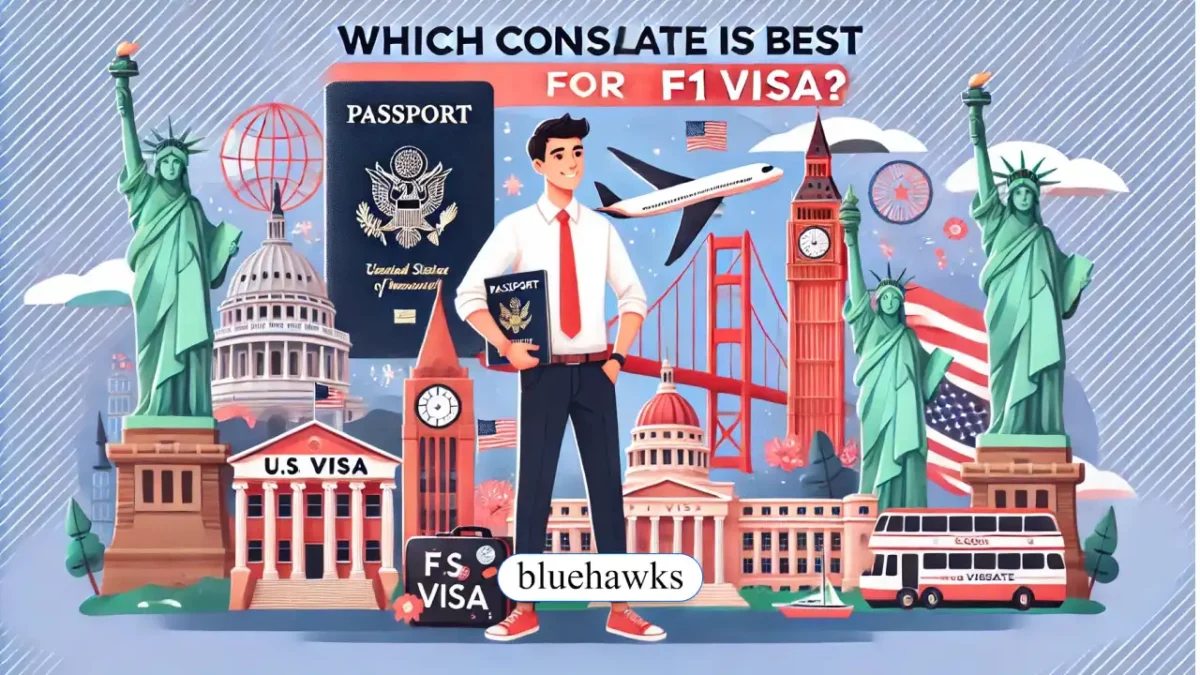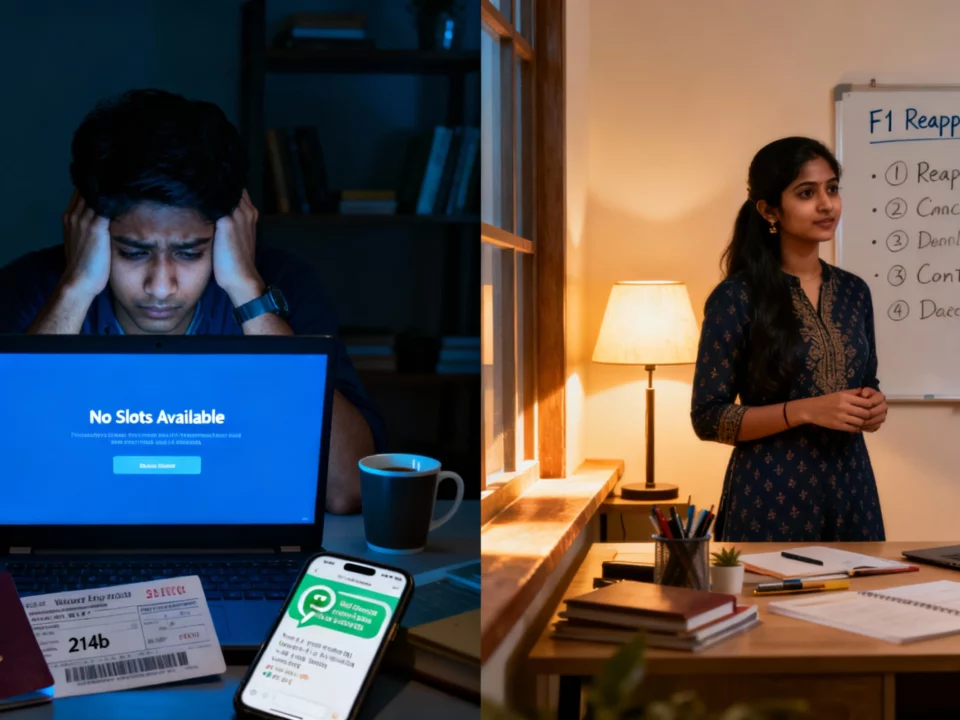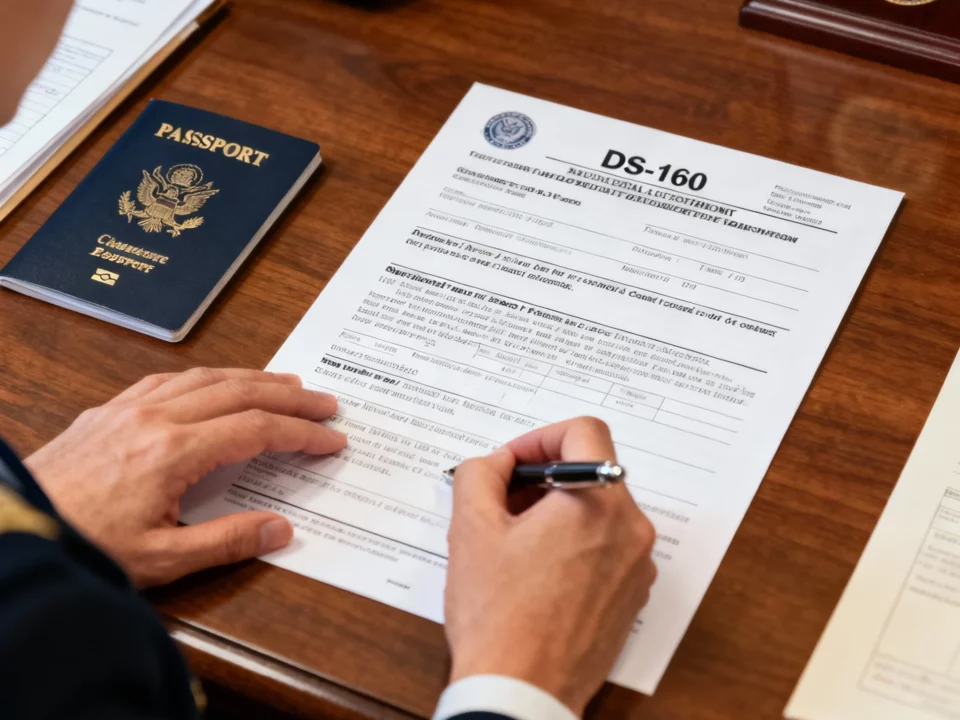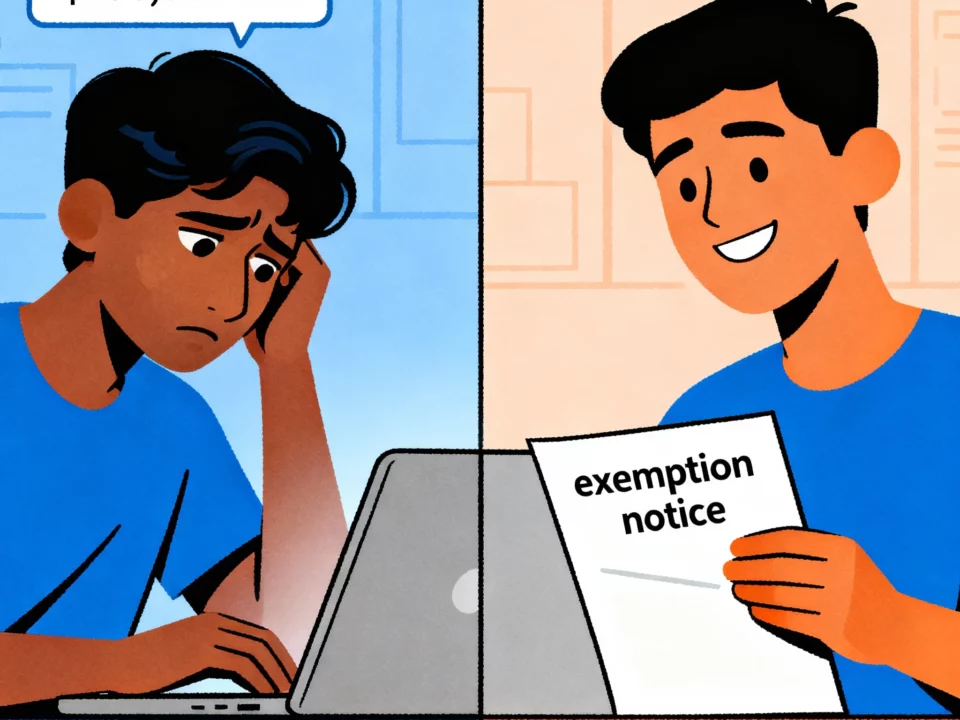Which Consulate is Best for F1 Visa?

Which Consulate is Best for F1 Visa?
When applying for an F1 visa, many students find themselves asking: “Which consulate is best for F1 visa approval?” This question is even more common among students with prior refusals. Let’s delve into the factors that actually influence F1 visa approval and whether luck plays a role in the process.
Key Takeaways
- All U.S. consulates follow the same visa laws and guidelines.
- Approval largely depends on the strength of your profile and preparation, not the consulate or visa officer.
- Randomized counter assignments and rotating officers ensure fairness.
- Luck plays a minimal role compared to preparation and the merit of your application.
Table of contents
Choosing the Right Consulate
1. First-Time Applicants
First-time applicants are typically advised to apply at the consulate closest to their place of residence. However, you can also choose another consulate if:
- Appointment availability is better elsewhere.
- You’re temporarily residing in a different city.
Key U.S. consulates for F1 visa interviews in India include:
- Delhi: Covers northern India.
- Mumbai: Covers western India.
- Hyderabad: Popular among southern Indian students.
- Chennai: Another major southern option.
- Kolkata: For students from eastern India.
Remember, all consulates adhere to the same policies, so there’s no evidence that one consulate is “easier” than another.
2. Students with Prior Refusals
If you’ve faced a prior refusal, you may consider switching consulates. While this isn’t required, it can:
- Provide a sense of starting afresh.
- Help you avoid feeling scrutinized by the same officers.
That said, all consulates access your prior visa application records. Switching consulates won’t bypass the reasons for your earlier refusal, so addressing those concerns is crucial.
The Role of Luck in F1 Visa Approval at Consulate
Does Luck Matter?
Many students attribute F1 visa approvals to luck, given the uncertainty surrounding the interview process. However, luck plays only a minor role. Here’s why:
- Random Counter Assignment: You cannot choose your visa officer or counter. This randomness ensures fairness but may lead to different interview experiences.
- Officer’s Interpretation: While officers are trained to assess applications objectively, human judgment can vary. This element might feel like “luck” to some.
- Preparation Outweighs Luck: A well-prepared applicant with a clear purpose and strong documentation is far more likely to succeed, regardless of “luck.”
How to Overcome Perceived “Bad Luck”
- Focus on strengthening your application.
- Prepare thoroughly for the interview.
- Seek professional guidance to address weak points.
Common Myths About Consulates and Visa Approval
Myth 1: Certain Consulates Have Higher Approval Rates
Some believe that consulates like Hyderabad or Mumbai are “friendlier.” In reality, all consulates operate under the same U.S. visa guidelines. Approval depends on the quality of your profile, not the consulate.
Myth 2: Friendly Visa Officers Are Key
There’s no such thing as an officer who approves more visas. Visa officers are rotated regularly to maintain fairness.
Myth 3: Switching Consulates Guarantees Success
While a new setting can boost your confidence, success depends on addressing the reasons for previous refusals, not the location.
How to Increase Your Approval Chances at any Consulate
- Understand Why Refusals Happen The most common reason for F1 visa refusal is under Section 214(b) of the U.S. Immigration and Nationality Act. This typically means:
- The officer wasn’t convinced of your intent to return to your home country.
- There was insufficient clarity on your academic or career goals.
- Financial documentation was inadequate.
- Prepare for the Interview Strong preparation is key to success. Focus on:
- Practicing common F1 visa questions and answers.
- Preparing clear, concise explanations for weak points in your application.
- Demonstrating confidence and clarity during the interview.
- Seek Expert Guidance Professional consultants, like bluehawks, can help you:
- Craft strong answers to potential visa questions.
- Address past refusal reasons effectively.
- Build confidence with mock interviews.
- Highlight Changes in Your Profile For applicants with prior refusals, demonstrating what has changed since your last interview is crucial. For example:
- Additional academic achievements or certifications.
- Improved financial support.
- Refined career goals.
Tips for a Successful Interview
- Be Honest: Always provide truthful information and documentation.
- Be Concise: Visa officers prefer direct, to-the-point answers.
- Show Home Ties: Highlight your reasons for returning to your home country after completing your studies.
- Be Confident: Nervousness can raise doubts about your intent.
FAQs
Q: Should I disclose my previous refusal if I’m applying at a new consulate?
Yes, always be honest about past refusals. Visa officers have access to this information.
Q: Does switching consulates improve my chances?
Not necessarily. Your success depends on addressing the reasons for refusal, not the consulate.
Q: Can I choose a specific counter or officer?
No, counter and officer assignments are random.
Final Thoughts
When it comes to choosing the right consulate for your F1 visa interview, the focus should be on preparation rather than location. While luck may influence minor factors like counter assignments, your approval ultimately hinges on the strength of your application and interview performance. At bluehawks, we’re committed to helping you every step of the way, ensuring you’re fully prepared to succeed.
Ready to secure your F1 visa? Contact us today for expert guidance and personalised interview preparation!



